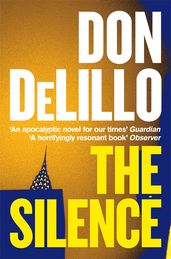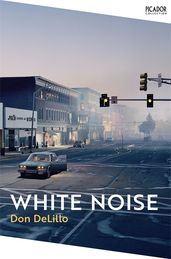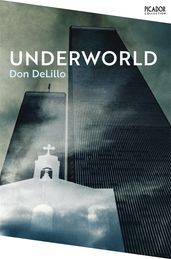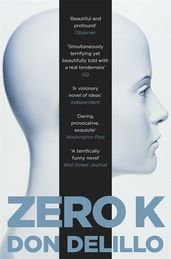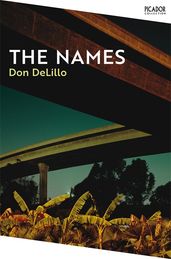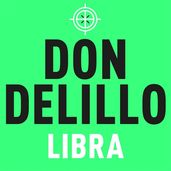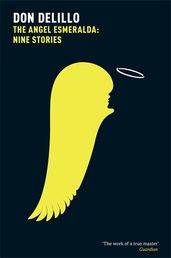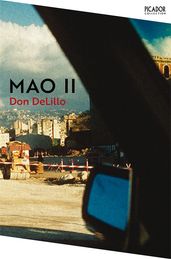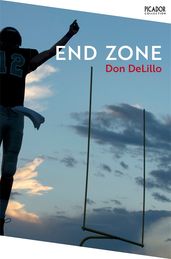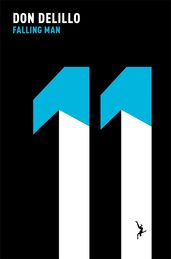Don DeLillo's books: a beginner's guide
Read on for our complete guide to the books of the incomparable Don DeLillo, from Underworld and White Noise to The Silence.

Don DeLillo is one of the greatest living American novelists. Over the last forty-five years he has produced seventeen novels and several plays, many of which are considered to contain some of the finest writing of the twentieth and twenty-first centuries.
Anyone new to Don DeLillo's books could be forgiven for not having a clue where to start. Luckily, Kris Doyle who worked closely on Don's works in his role as Editorial Director at Picador, is on hand to offer some expert advice.
A quick guide to Don DeLillo's books
The novel for now
The Silence
by Don DeLillo
Don DeLillo has always seen the future in the present, but perhaps never more effectively than with The Silence. Although it was begun before COVID-19 existed, it’s set at a time when a virus that emptied the streets is ‘fresh in the memory’ and an even greater disaster is about to strike. A dazzling short novel about what it means to be human in a time of crisis.
The breakout novel
White Noise
by Don DeLillo
Possibly DeLillo’s funniest book, White Noise introduced his work to a wider audience than ever before and established his reputation as a master of postmodern fiction.
Jack Gladney is the creator and chairman of Hitler studies at the College-on-the-Hill. The novel is a story about his absurd life; a life that is going well enough, until a chemical spill from a rail car releases an 'Airborne Toxic Event' and Jack is forced to confront his biggest fear – his own mortality. DeLillo's bestselling story effortlessly combines social satire and metaphysical dilemma, exposing our rampant consumerism, media saturation and novelty intellectualism.
The film adaptation of White Noise, starring Adam Driver and directed by Noah Baumbach, is out now on Netflix.
The magnum opus
Underworld
by Don DeLillo
DeLillo’s epic saga opens - famously - at the Dodgers-Giants 1951 National League final, where Bobby Thomson hits The Shot Heard Round the World and goes on to encompass fifty years of American history. It offers a panoramic vision of America, defined by the overarching conflict of the cold war.
The gateway novel
Zero K
by Don DeLillo
DeLillo’s first novel in just under a decade is everything his fans have been waiting for, however it also makes a great introduction to his work. Like the very best of his books, it weighs the darkness of the world - terrorism, floods, fires, famine, plague - against the beauty and humanity of everyday life.
The thriller
The Names
by Don DeLillo
An exotic thriller about a mysterious ‘language cult’ seemingly behind a number of unexplained murders. The Names explores the intersection of language and culture, the perception of America from both inside and outside its borders, and the impact that narration has on the facts of a story.
The cult classic
Libra
by Don DeLillo
DeLillo investigates the assassination of John F. Kennedy through a fictionalized account of the life of Lee Harvey Oswald. His portrayal of Oswald's journey from troubled teenager to a man of precarious stability is powerful, sensitive and eerily convincing.
The quick fix
The Angel Esmeralda: Nine Stories
by Don DeLillo
Don DeLillo’s collection of short stories is the perfect bite-sized introduction to his work. In true DeLillo style they represent a vast range of human experience, taking us from the slums of New York to the Earth’s orbit.
Next steps
Mao II
by Don DeLillo
Once you’re a firm DeLillo convert you might want to try his most aphoristic novel, in which a reclusive novelist attempts to free a poet held hostage in Beirut. Mao II explores DeLillo’s thoughts on a world in which the writer’s influence on the inner life of a culture now belongs to bomb-makers and gunmen.
More great reads from Don Delillo
Great Jones Street
by Don DeLillo
Bucky Wunderlick is a rock and roll star. Dissatisfied with a life that has brought fame and fortune, he suddenly decides he no longer wants to be a commodity. He leaves his band mid-tour and holes up in a dingy apartment in Great Jones Street. Unfortunately, his disappearing act only succeeds in inflaming interest . . . More than a musical satire: Great Jones Street delivers a scathing portrait of our culture's obsession with the lives of the few.
End Zone
by Don DeLillo
During a season of unprecedented success, Gary Harkness, a football player and student at Logos College, west Texas, becomes increasingly fixated on the threat of nuclear war. Both frightened and fascinated by the prospect, he listens to his team-mates discussing match tactics in much the same terms as generals might contemplate global conflict. But as the terminologies of football and nuclear war – the language of end zones – become interchanged, the polysemous nature of words emerges, and DeLillo forces us to see beyond the sterile reality of substitution.
Falling Man
by Don DeLillo
Falling Man is an unforgettable novel, at once cathartic and beautiful and heartbreaking. It begins on September 11, in the smoke and ash of the burning towers; and in the days and the years following we trace the aftermath of this global tremor in the private lives of a few reticulated individuals. Theirs are lives choreographed by loss, by grief and by the enormous force of history.
Point Omega
by Don DeLillo
Richard Elster, a retired secret war adviser, has retreated to a forlorn house in a desert, 'somewhere south of nowhere'. But his planned isolation is interrupted when he is joined by a young filmmaker intent on documenting his experience in a one-take film. The two men sit on the deck, drinking and talking. Weeks go by. And then Elster's daughter Jessie visits. When a devastating event follows, all the men's talk, the accumulated meaning of conversation and isolation, is thrown into question.
Why read Don DeLillo?
Don DeLillo is one of America’s most important and influential writers. He is perhaps the quintessential American novelist. Why? He engages with the history of his country and predicts its future with a freakish accuracy; he catches the voices, fears and hopes of the full range of Americans; the capaciousness of his work only serves to highlight his omnicompetence.
DeLillo has interrogated consumerism, intellectualism, terrorism, digital technology, the family, death, the power of violence, the impact of the Atomic Bomb; the list goes on. The importance of America, especially in the global events of the twentieth century, would ensure his relevance to readers everywhere, even if it weren’t for the fact that we in the West live in an increasingly homogenised culture, an increasingly American culture.
But for me, what makes him special isn’t all of this grand-sounding stuff.
The feeling I love most when reading is perhaps best called extrusion, that delightful rush that comes when the pull of a writer’s words on the page draw you towards a new experience: the quick expansion of consciousness, the shock of recognition, the delicious and surprising hit of emotion.
Some writers choose to think in macro terms and some at the micro-level of the sentence; DeLillo can do both. At his best, I think he’s one of few writers who can do them simultaneously. DeLillo writes books that are smart, funny, perceptive, moving, relevant and true because he can think big and write small. He gives himself more opportunities than most writers to bring the reader’s consciousness up to join him because of the fearlessness with which he explores the terrain of the world he finds himself in and the equal fearlessness of the way he deploys language to offer us his visionary remaking of it.
Every book feels like an act of deep thinking and we rush to meet him because he’s always out in front, there on the horizon, aiming for the bright edge.
Image credit: Joyce Ravid
